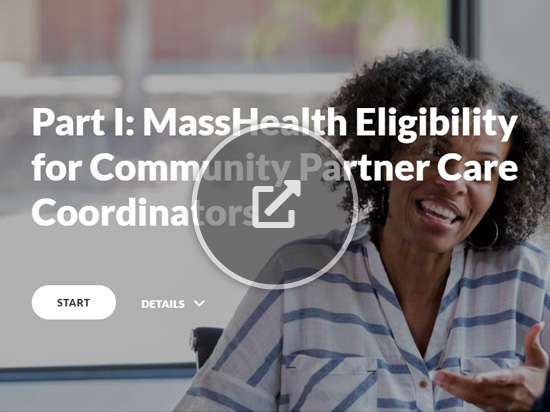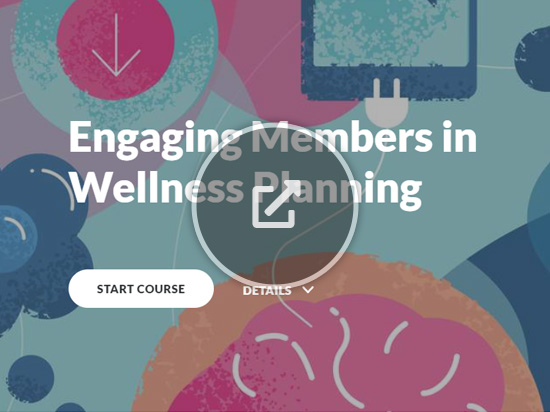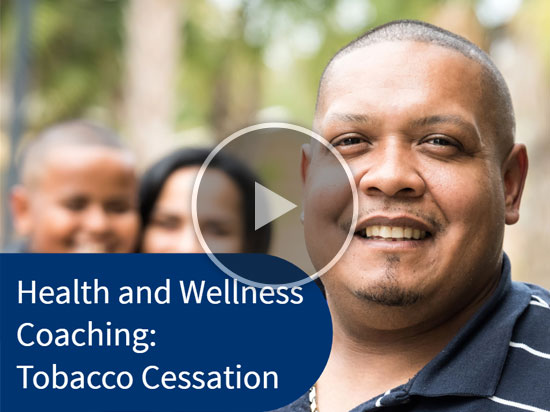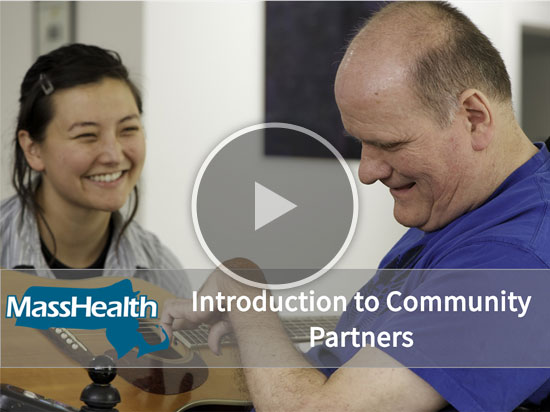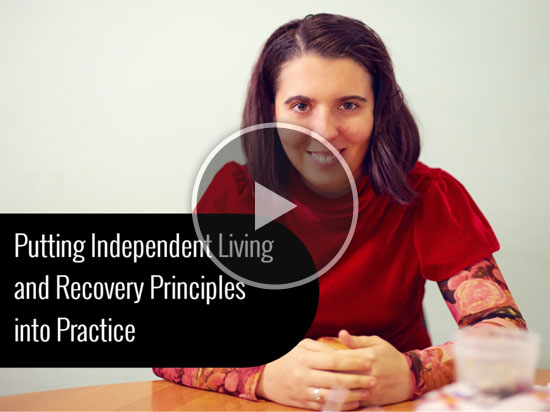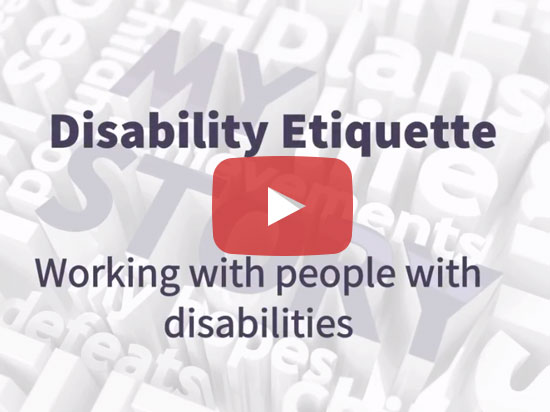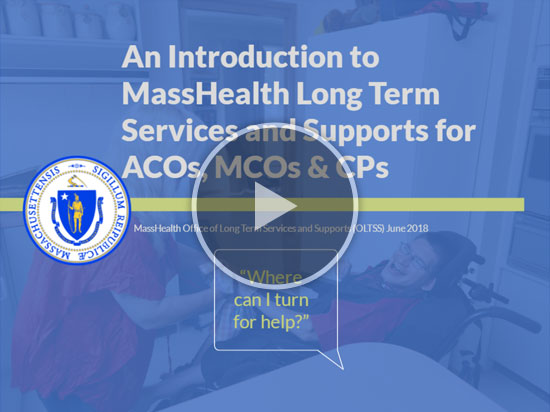This page hosts online training modules and recorded webinars that were developed for Community Partners Care Coordinators. They can be used to strengthen knowledge and understanding of healthcare reform topics and to improve care coordination skills. Trainings may include an option to request a certificate of completion at the end of each training. These can be shared with supervisors or employers to demonstrate training completion.
Part I: MassHealth Eligibility for Community Partners Care Coordinators
This two-part series provides an overview of MassHealth eligibility to help CP Care Coordinators in their work with members. Part I focuses on the basics of MassHealth eligibility criteria, managed care types, managed care plans, and offers an interactive review of MassHealthchoices.com.
This two-part series provides an overview of MassHealth eligibility to help CP Care Coordinators in their work with members. Part I focuses on the basics of MassHealth eligibility criteria, managed care types, managed care plans, and offers an interactive review of MassHealthchoices.com.
Part II: MassHealth Eligibility for Community Partners Care Coordinators
This two-part series provides an overview of MassHealth eligibility to help CP Care Coordinators in their work with members. Part II focuses on the sources of MassHealth eligibility support and assistance and introduces learners to the MassHealth Eligibility Verification System (EVS).
This two-part series provides an overview of MassHealth eligibility to help CP Care Coordinators in their work with members. Part II focuses on the sources of MassHealth eligibility support and assistance and introduces learners to the MassHealth Eligibility Verification System (EVS).
Engaging Members in Wellness Planning
This module explores how care coordinators can use concepts from Wellness Recovery Action Plan (WRAP) utilized by recovery coaches and behavior health providers. These recovery principles and WRAP tools can be used to engage members in wellness planning to improve their health, wellness, and community tenure.
This module explores how care coordinators can use concepts from Wellness Recovery Action Plan (WRAP) utilized by recovery coaches and behavior health providers. These recovery principles and WRAP tools can be used to engage members in wellness planning to improve their health, wellness, and community tenure.
Health and Wellness Coaching: Introduction
This introductory module kicks off the training series on health and wellness with a reflection of what health and wellness means to you, considering your role as a care coordinator in promoting wellness, and provides a review of person-centered planning and motivational interviewing techniques through the lens of wellness promotion.
This introductory module kicks off the training series on health and wellness with a reflection of what health and wellness means to you, considering your role as a care coordinator in promoting wellness, and provides a review of person-centered planning and motivational interviewing techniques through the lens of wellness promotion.
Health and Wellness Coaching: Tobacco Cessation
The focus of this module is to improve the comfort of care coordinators to talk with members about tobacco cessation and ways to help people find support. You will explore the benefits of tobacco cessation, understand evidence-based ways to help and learn how to apply the Ask-Advise-Refer method.
The focus of this module is to improve the comfort of care coordinators to talk with members about tobacco cessation and ways to help people find support. You will explore the benefits of tobacco cessation, understand evidence-based ways to help and learn how to apply the Ask-Advise-Refer method.
Community Partners 101
Community Partners (CPs) are community-based organizations who have been contracted by MassHealth to provide enhanced care coordination for MassHealth members with complex needs who are enrolled in ACOs and MCOs. This module will review both Behavioral Health CPs and Long-Term Services and Supports CPs, the objectives of the CP program, who the CPs serve, and how members access CP supports.
Community Partners (CPs) are community-based organizations who have been contracted by MassHealth to provide enhanced care coordination for MassHealth members with complex needs who are enrolled in ACOs and MCOs. This module will review both Behavioral Health CPs and Long-Term Services and Supports CPs, the objectives of the CP program, who the CPs serve, and how members access CP supports.
The Principles of Person-Centered Planning
Health care professionals and care coordinators are key to helping individuals with disabilities to have a stronger voice in determining their care. During this module you will differentiate between person-centered and traditional service planning and identify the key elements of person-centered planning. Knowing these principles is critical to helping individuals advocate for their own goals and dreams.
Health care professionals and care coordinators are key to helping individuals with disabilities to have a stronger voice in determining their care. During this module you will differentiate between person-centered and traditional service planning and identify the key elements of person-centered planning. Knowing these principles is critical to helping individuals advocate for their own goals and dreams.
Putting Person-Centered Planning into Action
Assisting individuals to determine their own care and advocate for themselves has been shown to improve health outcomes and quality of life. Building on the Principles of Person-Centered Planning module, you will review the six steps of person-centered planning, think about how you can be a facilitator of person-centered planning, and consider ways to expand circles of support for individuals.
Assisting individuals to determine their own care and advocate for themselves has been shown to improve health outcomes and quality of life. Building on the Principles of Person-Centered Planning module, you will review the six steps of person-centered planning, think about how you can be a facilitator of person-centered planning, and consider ways to expand circles of support for individuals.
Putting Independent Living & Recovery Principles into Practice
Independent Living (IL) emphasizes consumer control and dignity of risk and is a commitment to ensure people with disabilities are able to fully participate in every aspect of society. Recovery is a process of change through which individuals improve their health and wellness, live a self-directed life and strive to reach their full potential. During this module you will review IL and Recovery principles and determine what actions you will take to incorporate these concepts and practices into your approach. You will hear from several people with lived experience and advocates.
Independent Living (IL) emphasizes consumer control and dignity of risk and is a commitment to ensure people with disabilities are able to fully participate in every aspect of society. Recovery is a process of change through which individuals improve their health and wellness, live a self-directed life and strive to reach their full potential. During this module you will review IL and Recovery principles and determine what actions you will take to incorporate these concepts and practices into your approach. You will hear from several people with lived experience and advocates.
Disability Etiquette
Etiquette is a code of behavior, manners or politeness. The purpose of this video is for you to consider ways to improve your etiquette when working with people with disabilities. Based on personal and professional experiences, disability advocates and people with disabilities offer an “insider’s perspective” on how to interact with individuals with disabilities in a manner that conveys respect and understanding.
Etiquette is a code of behavior, manners or politeness. The purpose of this video is for you to consider ways to improve your etiquette when working with people with disabilities. Based on personal and professional experiences, disability advocates and people with disabilities offer an “insider’s perspective” on how to interact with individuals with disabilities in a manner that conveys respect and understanding.
Motivational Interviewing
Motivational Interviewing or MI is a method of interacting with individuals to facilitate health behavior change. MI is a shift away from telling people why they should change or how they should change. Instead, MI works to draw out from the person their ideas about why change would be beneficial and how it can be done in the context of that individual’s life. During this module you will consider why people change health behavior, review some key concepts of MI, view examples of those concepts, and explore resources for additional training on MI.
Motivational Interviewing or MI is a method of interacting with individuals to facilitate health behavior change. MI is a shift away from telling people why they should change or how they should change. Instead, MI works to draw out from the person their ideas about why change would be beneficial and how it can be done in the context of that individual’s life. During this module you will consider why people change health behavior, review some key concepts of MI, view examples of those concepts, and explore resources for additional training on MI.
An Introduction to MassHealth Long Term Services and Supports for ACOs, MCOs & CPs
The MassHealth Office of Long-Term Services and Supports (OLTSS) provides a robust system of care for members of all ages who need services to enable them to live with independence and dignity in their daily lives, participate in their communities, and increase their overall quality of life. These services include Community-Based Long-Term Services and Supports (LTSS), Facility-Based LTSS, as well as Other Covered Services (together, OLTSS Services). In this module you will walk through an overview summary of OLTSS services and take away An Introduction to MassHealth Long Term Services and Supports and Other Covered Services guide for future reference.
The MassHealth Office of Long-Term Services and Supports (OLTSS) provides a robust system of care for members of all ages who need services to enable them to live with independence and dignity in their daily lives, participate in their communities, and increase their overall quality of life. These services include Community-Based Long-Term Services and Supports (LTSS), Facility-Based LTSS, as well as Other Covered Services (together, OLTSS Services). In this module you will walk through an overview summary of OLTSS services and take away An Introduction to MassHealth Long Term Services and Supports and Other Covered Services guide for future reference.
Best Practices in Writing a Care Plan
The care plan is the center of the work that Behavioral Health (BH) or Long-term Services and Supports (LTSS) Community Partners and Accountable Care Organizations (ACOs) and Managed Care Organizations (MCOs) do with MassHealth members. The purpose of this module is to increase the use of care plans as a guide for the member, the care coordinator and the care team.
The care plan is the center of the work that Behavioral Health (BH) or Long-term Services and Supports (LTSS) Community Partners and Accountable Care Organizations (ACOs) and Managed Care Organizations (MCOs) do with MassHealth members. The purpose of this module is to increase the use of care plans as a guide for the member, the care coordinator and the care team.

